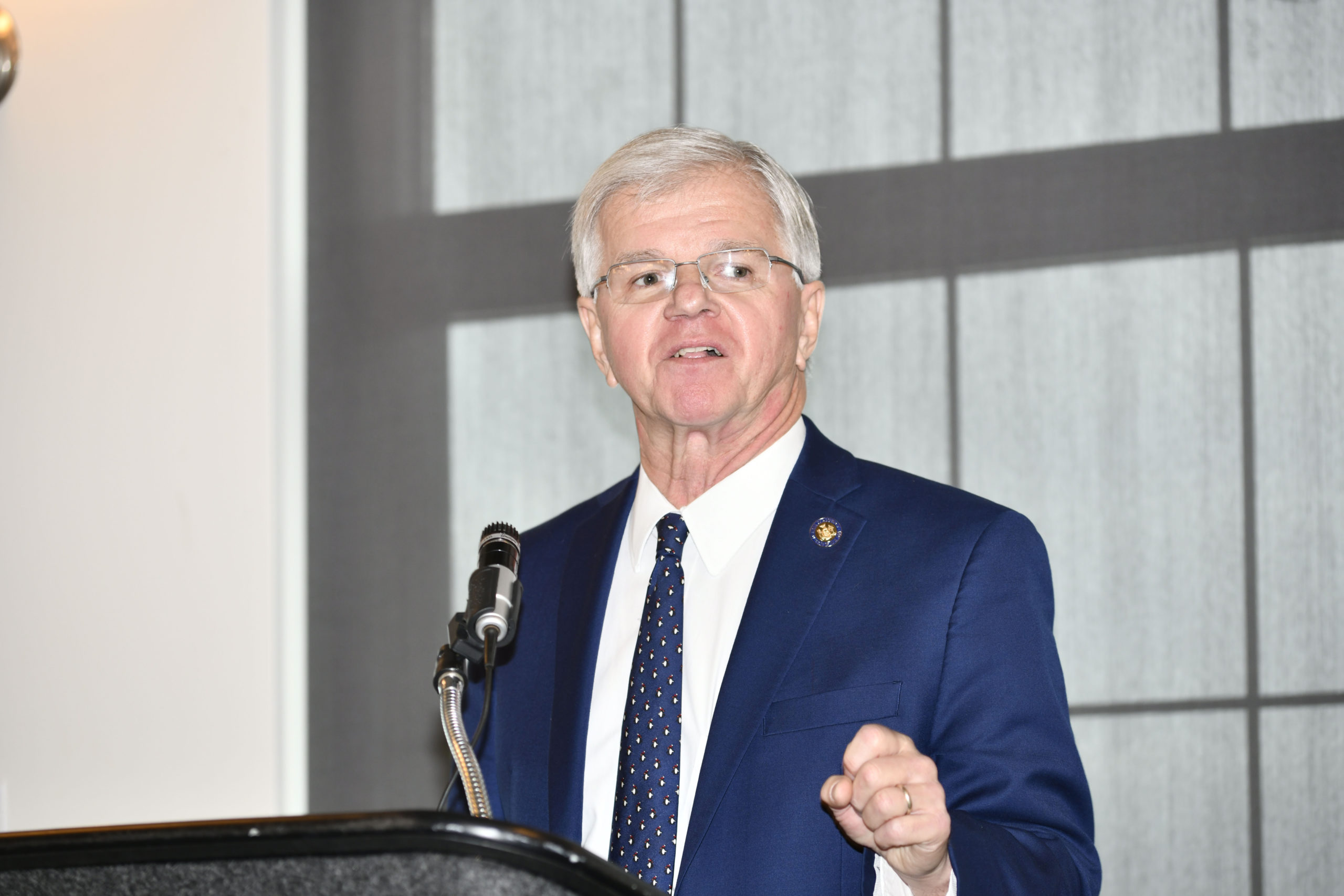
The Montauketts have waited over 100 years to regain recognition from the State of New York after being declared extinct in 1910. But State Assemblyman Fred W. Thiele Jr. believes the time is right to have the deed reversed — even though he has tried unsuccessfully several times before.
The legislator announced this week that, during a vote last Tuesday, July 21, the Assembly unanimously passed his bill declaring official recognition for the nation. The bill is being carried in the Senate by State Senator Kenneth P. Lavalle, and is expected to come to a vote when the Senate returns to Albany in the fall. And while both men have been down this road three times since 2013, Governor Andrew Cuomo has vetoed the bills each time.
The fourth time will be different, Mr. Thiele predicted on Monday.
“There is a preponderance of evidence that has been delivered since the last time,” said the assemblyman.
But the chief difference may be the heightened sensitivity to race that exists in the country.
“There has been a change in the political climate,” observed Mr. Thiele.
“We’re very excited,” said Sandi Brewster-Walker, executive director of the Montaukett Indian Nation, who, as a historian, has provided the additional information and research to the state.
“We’ve answered a lot of the questions the state has put before us,” she said, including extensive genealogies of the members of the Montaukett nation, and a history of the people who settled at the tip of Long Island thousands of years before the first European settlers arrived.
“We’ve really managed to connect the dots,” she said.
Additional sources for a lot of this information have come from research by historians John Strong and Gaynal Stone, and include family histories of the ancestors of Sag Harbor’s Robert Pharaoh and the Fowler family, who were longtime leaders of the Montauketts.
“We’ve brought all of this together,” said Ms. Brewster-Walker.
One of the toughest concepts Ms. Brewster-Walker said she has had to convince the state of is that the nation’s members are scattered around Long Island. And without a piece of land to call home — as, locally, the Shinnecock and Unkechaug have — the nation is less centralized. There are approximately 366 Montauketts at present in New York state, according to membership rolls, and an additional 150 to 200 over 18 years old as far west as California, said Ms. Brewster-Walker.
“There are family groupings all over the island,” she said.
But despite this, the Montauketts have always maintained their traditions and laws.
“We have always been a hereditary tribe,” said Ms. Brewster-Walker, with leadership almost exclusively drawn from generations of the Fowler and Pharaoh families.
“They have continued their existence, they have continued their history, they have continued their governance, the only thing they don’t have is the land,” said Mr. Thiele. “The irony of that is the land was taken from them by the very act that extinguished them.”
After a series of lawsuits in the late 19th century brought by the Montauketts in an effort to reclaim some of their land at Montauk Point, the court ruled in the case of Pharaoh vs. Benson — the Montaukett chief vs. the heirs of the man who had acquired almost all of Montauk — that the land purchased decades earlier was done legitimately and the Montauketts had, in fact, received compensation.
According to testimony in one of the original complaints brought by Montaukett Chief Wyandank Pharaoh, Chief Pharaoh’s mother was paid a $100 semi-annual annuity and given two houses, $80 was paid to each of her two brothers and Wyandank was paid $10 for land that had previously been leased to the Montauk Propietors. Of that, property totaling 11,000 acres was bought at auction by Arthur Benson for $151,000 in 1879, and 5,000 of those acres was subsequently sold to the Long Island Rail Road for $600,000.
At the same time, the court’s judge, Abel Blackmar, determined that the tribe no longer existed due to the fact the number of Montauketts had been greatly reduced and claimed that “their blood became so mixed that in many of them Indian traits were obliterated.” He further claimed they had no form of internal government.
Those decisions, however, were criticized decades later, according to Mr. Thiele. In a separate case brought before the State Supreme Court in 1994, Breakers Motel vs. Sunbeach Montauk Two, Inc., the court described the Pharaoh vs. Benson case as being of “questionable propriety.”
Mr. Thiele is confident the bill will pass in the Senate, and said his conversation with the chairman of the senate’s government operations committee indicated the bill will be moved forward when the Senate returns in September, as expected.
While the practical benefits of recognition are limited, the psychic benefits are great. Mr. Thiele said state recognition carries with it some funding for educational and health programs, including for prescription drugs.
“But the number one major reason is simply the intangible benefit of righting a wrong,” said the assemblyman.